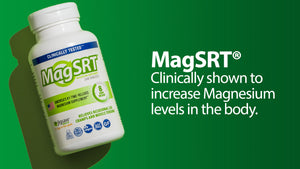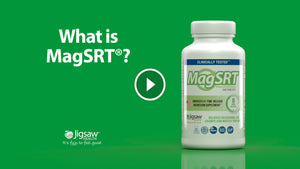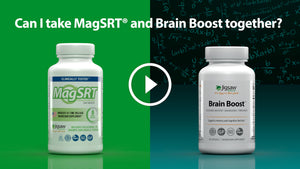Deciding which supplements you should buy is a tricky business. There are thousands of options to choose from, but very little reliable information to help you weed out the best from the rest. As you probably already know, not all supplements are created equal. That's why it's so important to do your homework to find out which ones will be most helpful for you.
If amazing deals ("Buy 1, get 3 FREE!") OR the idea that expensive MUST equal best tend to be deciding factors for which supplement you buy, remember that price is NOT an indicator of safety or quality. The most important indicator of that is the label.
That's why the first step in choosing a helpful dietary supplement should always be reading the label. The Food and Drug Administration (FDA) requires that manufacturers provide a "Supplement Facts" panel similar to the "Nutritional Facts" label found on packaged foods. It should always provide the following information (if it doesn't, don't buy it!):
- Serving size
- All ingredients
- Amounts of each ingredient (proprietary blends must list ingredients in order from most-used to least-used)
- Suggested use
There are certain things you should pay close attention to in order to determine the quality and safety of the supplement:
First things first, look at the ingredients. Know what you're taking and where it comes from.
Also note the FORM an ingredient is in. Is it natural or synthetic? Active or inactive? Highly absorbable or not? For example, B-vitamins require an active form for them to be quickly absorbed by your body. However, most B-vitamins are not in this active form and, thus, need to be first converted by your liver in order to be absorbed. For many, this conversion to the active form is often difficult.*
These things are all very important in determining how effective a given supplement will be, but the importance of each factor varies by ingredient so do your homework! You don't want to pay good money for a product that's in a form your body won't recognize, absorb, or use well.*
Remember: Just because a supplement is inexpensive, that does NOT mean it's "good" or that it contains ingredients that are active, potent, and sufficient to meet your body's needs.*
Next, check out the additives. Don't buy products containing unessential stuff. Make sure that every ingredient can be used by your body for some beneficial purpose.
Many manufacturers add fillers, binders, artificial colors and flavors, sweeteners, or chemical preservatives to their products.
While some fillers are necessary to properly manufacture the product, others are not. Also, some natural additives (such as binders) may be present to help the supplement be delivered more effectively to your body. However, you should always avoid these additives:
- Dyes or artificial colors
- Chemical preservatives
- Artificial sweeteners
These are unnecessary additives that don't help the body at all. Worse, they may detract from the effectiveness of the supplement since all that stuff must be stripped away in order to make the good part available to the body.
Look for adherence to Good Manufacturing Practices. These lie at the heart of quality.
Good Manufacturing Practices (GMPs) are guidelines that provide a system of processes, procedures, and documentation to ensure that the product produced has the identity, strength, composition, quality, and purity that it is represented to possess.
GMPs include a variety of practices that ensure quality such as:
- Raw materials quality assurance.
- Record-keeping of substances throughout the manufacturing process.
- Standards for cleanliness and safety.
- Qualifications of manufacturing personnel.
- In-house testing.
- Production and process controls.
- Warehousing and distribution.1
Finally, find brands you can trust. Carefully research the company that manufactures the supplements.
Make sure that they come from a reputable company that has verifiable contact information (physical address, email address, and phone number).
Make sure that company holds itself to high-quality standards and offers customer service.
Buy directly from the company that makes the supplements. This way you'll benefit from the company's refund and guarantee policies. Plus, you'll know exactly where to go if you have questions and concerns about your supplements.
Also, by purchasing directly from a reputable company, you won't be vulnerable to online scams that will take your money and never deliver your products.
So what ARE the best supplements?
For those who are likely to be deficient in essential vitamins, minerals, and amino acids, highly absorbable supplements should be a top priority. Taking supplements that are easily absorbed and utilized is crucial.*
Certain forms or types of ingredients have been proven more effective than others. Some of these include:
- Amino Acids that are pharmaceutical-grade and most closely resemble the amino acids in the body. Also, look for "branched-chain" essential aminos since your body can't make those on its own. Peptide bonds also help the aminos to be more readily absorbed and utilized by the body.*
- Probiotics that have the highest count (should be in the billions) of live, active bacteria, and only a few different types of those bacteria. Make sure that the bacteria are not dirt based, but rather occur naturally in the human intestines.3*
- Minerals that are glycine chelates, which means that the mineral is surrounded by and bound to amino acids. This greatly improves their bioavailability (or ability to be absorbed and used by the body).4 It has also been established beyond controversy that certain pairs of amino acids, called dipeptides, are the easiest of all chelates to be absorbed. Of these, dimalate leads the pack.4,5*
- Vitamins that are combined with other ingredients proven to enhance their absorption.*
Other important things to remember:
- Some supplements may interact with prescription and over-the-counter medicines, so be sure to ask your doctor about such possible interactions before incorporating a supplement into your diet.6
- Some supplements can have unwanted effects during surgery, so be sure to fully inform your doctor about the vitamins, minerals, herbs, and all other supplements you are taking. This way you can avoid potentially dangerous supplement/drug interactionssuch as changes in heart rate, blood pressure, and increased bleeding.6
For further reliable information about dietary supplements, check out:
Cited Sources:
1) Good Manufacturing Practices (GMPs), SupplementQuality.com
http://www.supplementquality.com/stdregs/GMPs.html
Accessed July 2005
2) Strate, Mary Ellen. How to Choose a Supplement, Natural Health, April 2005.
3) Dash, S.K. PhD. All Probiotics Are Not the Same, The Doctors Prescription for Healthy Living, Vol. 6, No. 9.
4) OShea, Tim DC. Minerals
http://www.health-report.co.uk/minerals_minerals.html
Accessed July 2005
5) Ashmead, H. DeWayne PhD, Thomas, Charles C., Intestinal Absorption of Metal Ions and Chelates, Chapter 7.
6) Dietary Supplements, Jan. 2002
Center for Food Safety and Nutrition, U.S. Food and Drug Administration
http://www.cfsan.fda.gov/~dms/ds-savvy.html
Accessed July 2005




















